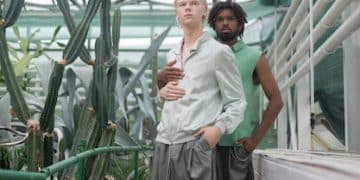The Freegan Movement in the US: Ethics and Waste Reclamation in 2025

The freegan movement in the United States in 2025 is characterized by individuals reclaiming discarded resources as a form of protest against consumerism and to promote sustainable, ethical living.
The ‘Freegan’ Movement: Examining the Ethics and Practices of Waste Reclamation in the US in 2025 is more than just dumpster diving; it’s a conscious lifestyle choice challenging the status quo of waste and consumption. What does this movement look like in a near future shaped by heightened environmental awareness?
Understanding the Freegan Philosophy
At its core, the freegan philosophy rejects consumerism by minimizing participation in the conventional economy and maximizing resourcefulness. It goes beyond mere frugality, representing a critique of wasteful systems and a commitment to sustainable living.
Ethical Underpinnings
Freeganism is rooted in ethical concerns about environmental degradation, labor exploitation, and animal rights. By reducing consumption and utilizing discarded resources, freegans aim to lessen their ecological footprint and support alternative economic models.
Beyond Dumpster Diving
While dumpster diving is a well-known aspect, freeganism encompasses a range of practices including squatting, guerrilla gardening, and utilizing freecycling networks. These activities promote self-sufficiency and community resilience.
- Reducing dependence on corporate systems.
- Minimizing waste and promoting recycling.
- Supporting local and sustainable initiatives.
- Raising awareness about consumerism.
In essence, the freegan philosophy is a multifaceted approach to ethical living, challenging individuals to rethink their relationship with consumption and waste.
The Evolution of Freegan Practices in the US by 2025
By 2025, freegan practices in the US have evolved significantly, becoming more organized and technologically integrated. The movement has adapted to both increased awareness and regulatory challenges.

Technological Integration
Mobile apps and online platforms facilitate resource sharing and mapping of available dumpsters. These tools enhance efficiency and coordination among freegans, fostering a sense of community.
Community Networks
Local freegan groups organize regular events such as communal meals using foraged food, skill-sharing workshops, and protests against food waste. These activities reinforce the social bonds within the movement.
- Online forums for sharing tips and information.
- Collaborative mapping projects of dumpsters.
- Skill-sharing workshops on repair and repurposing.
- Organized dumpster diving expeditions.
Looking ahead to 2025 freegan practices are enhanced by technological integration and strong community networks, adapting to changing social and economic landscapes.
The Environmental Impact of Freeganism
Freeganism has measurable beneficial effects regarding environmental conservation. By reducing what goes to the landfills and repurposing materials that already exist, this movement is challenging current approaches to consumerism and waste management.
Reducing Landfill Waste
Diverting food, clothing, and other goods from landfills lowers greenhouse gas emissions associated with decomposition. That said, the impact can be difficult to quantify as the freegan movement is not usually tracked by official metrics.
Conserving Resources
Reusing salvaged items lessens the demand for new production, which in turn conserves resources such as water, energy, and raw materials. The goal is to exist simply and with limited consumption.
The environmental impact includes:
- Decreased carbon footprint.
- Reduced pollution from manufacturing processes.
- Preservation of natural resources.
- Promotion of a circular economy.
There are measurable environmental benefits of the freeganism movement, as landfill waste is reduced and other resources are conserved. This can help increase awareness of the benefits of anti-consumerism.
Ethical Considerations and Challenges
Ethical considerations within freeganism involve questions about the legality of waste reclamation, health risks, and social perceptions. There are also logistical and practical challenges to the movement.
Legality and Safety
Dumpster diving may be technically illegal in some jurisdictions, raising concerns about potential legal repercussions. It also carries health risks associated with consuming discarded food. Food safety can be especially precarious.
Social Stigma
Freegans often face negative social stigma due to misconceptions about their lifestyle. Many people do not understand the core philosophy and view the movement as unsanitary and unnecessary.
Examining the primary ethical considerations:
- Legal risks associated with dumpster diving.
- Health and safety concerns related to salvaged food.
- Social stigma and public perception.
- Balancing individual freedoms with community standards.
Ethical considerations and logistical challenges are key aspects of the freeganism movement. By addressing these issues, the community can strengthen their overall stance.
The Freegan Diet: Nutritional Implications
The freegan diet, largely composed of reclaimed food, has significant nutritional implications. While it can offer a variety of foods, it also poses certain health risks that need to be carefully managed. This will improve the overall health of the participant.
Ensuring Nutritional Balance
Maintaining a balanced diet through freeganism requires careful planning. Freegans must prioritize nutrient-rich foods and supplement their diet as needed.
Mitigating Health Risks
To minimize health risks, freegans must thoroughly inspect salvaged food for signs of spoilage and practice safe handling techniques. This will allow for an improved diet while reducing potential health related complications.
When partaking in a freegan diet, one should consider:
- The importance of nutritional balance.
- The potential health risks of consuming discarded food.
- Safe food handling practices.
- Supplementation, if necessary.
Nutritional implications are important in the freegan movement. With diligent planning, freegans can maintain a relatively healthy diet while still adhering to their core philosophies.
Freeganism vs. Mainstream Consumerism
The freeganism movement serves as a direct counterpoint to mainstream consumerism, challenging the values and norms of a society driven by relentless consumption. Understanding the difference in perspectives can assist in learning more.
Challenging Consumerist Values
Freeganism critiques the environmental and social consequences of consumer culture, advocating for a more sustainable and equitable way of life. They believe true health comes from less consumption.
Promoting Alternative Lifestyles
By embracing resourcefulness and self-sufficiency, freegans demonstrate viable alternatives to the consumerist lifestyle. These alternatives promote self-reliance and community participation.
The fundamental differences include:
- Rejecting the notion of endless economic growth.
- Prioritizing environmental sustainability.
- Valuing community and collaboration.
- Questioning corporate power.
The tension between the the freegan movement and mainstream consumerism is clear. Freeganism will continue to be a challenge for current trends. This could lead to better approaches to waste management.
Future Trends and Projections for the US in 2025
Looking ahead to 2025, The Freegan Movement: Examining the Ethics and Practices of Waste Reclamation in the US will likely experience continued growth, driven by environmental concerns and economic pressures. Predicting future growth can assist those involved.
Growing Popularity
Increased awareness of environmental issues and rising economic inequality may propel more people to embrace freegan principles. This trend is poised to continue in the coming years and to gain traction.
Policy Implications
As freeganism gains visibility, policymakers may need to address issues related to waste management and urban foraging. Possible changes in policy could be seen during this movement.
Predictions for the movement within the US:
- Increased visibility and social acceptance.
- Advocacy for policy changes.
- Technology integration to coordinate freegan activities.
- Greater collaboration for global change.
The future of the freegan movement is one of expansion, awareness, and increased integration. By addressing the ethical and practical considerations, the community can continue to thrive and promote a meaningful alternative to consumerism.
| Key Point | Brief Description |
|---|---|
| ♻️ Ethical Living | Rejecting consumerism to minimize waste and exploitation. |
| 📱 Tech Integration | Using apps to map dumpsters and share resources. |
| 🌱 Environmental Impact | Reducing landfill waste and conserving resources. |
| ⚖️ Ethical Challenges | Addressing legality, safety, and social stigma. |
Frequently Asked Questions
▼
Freeganism fundamentally rejects consumerism, aiming to minimize dependence on the conventional economy and to reduce waste. It focuses on sharing resources and living simply.
▼
Freegans leverage mobile apps and online platforms to map dumpsters, coordinate resource-sharing, and connect with local groups, fostering a communal network.
▼
The movement significantly reduces landfill waste and conserves natural resources. This reduces associated negative externalities such as gas emissions and energy waste.
▼
Health risks primarily arise from eating discarded food that may be contaminated or spoiled. Careful food inspection and safe handling practices will allow for mitigation.
▼
By embracing self-sufficiency and minimizing reliance on corporate systems, freegans directly challenge consumerist values and advocate for sustainable lifestyles.
Conclusion
The ‘Freegan’ Movement: Examining the Ethics and Practices of Waste Reclamation in the US in 2025 will continue to evolve as environmental awareness grows. Addressing ethical considerations and improving practices will be crucial for its impact on sustainability discussions.





